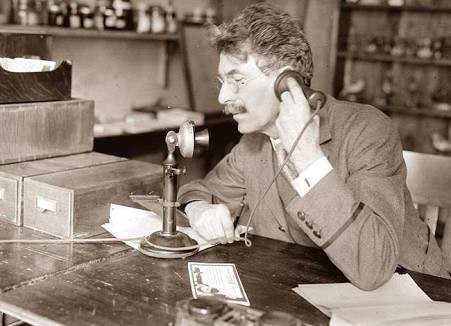These days we have a lot of communication means from email, call, text, Viber, and Skype. But most of us still don’t communicate well or don’t communicate at all.

One communication mistake could cost a million bucks. If you came out fresh from college and start working 8 to 5, most companies focus on the main job function. But people forget that one’s communication habits are one of the most important aspects at work, especially when working with a team.
These days we have a lot of communication means from email, call, text, Viber, and Skype. But most of us still don’t communicate well or don’t communicate at all. At Hilsoft, we start our week with a plan. We have daily standup reports, end of day reports and random instant messaging and calls. But these policies don’t have any value if we don’t have smooth communication process. Below are 8 communication strategies we practice:
1. Content is King – an end of day report is nothing if the content is vague and unclear. Make reports as much detail as possible. The audience of these reports is the management. And management won’t make smart decisions if there’s nothing in the report. Incorporate things you have accomplished, time spent, roadblocks, exceptions, plans and next steps and estimates. These things have great value in the company
2. Acknowledge – eye on the ball and don’t drop it. Many people I work with forget or do not acknowledge msgs. And it’s really frustrating to talk to a wall because it doesn’t respond. A simple OK or Ack helps a lot in a team especially when you give instructions. It’s difficult to guess if they understood.
3. Follow A Structure – some people msgs randomly like “Hey, I will have this thing installed.”. And I say, ” what are you talking about?”. Your current mind frame will never be the same with the other party. Start with a nice greeting, raise the subject, refer to previous conversations before imparting the message. It’s like problem-solving. Start with the definition of the problem, then hypothesis, objective setting, analysis, and conclusion.
4. Keep Promises – if you say you’ll get back to a person tomorrow at 9 am, get back to the person. Don’t wait for him to follow up. That stimulates respect and credibility, especially to customers. You’ll be reliable I promise. If you won’t be able to give a concrete answer then at least get back and tell.
5. Raise Issues – I was having breakfast with an old friend the other day in a restaurant that she owns. She told something to her waiter and then ordered her meal. The waiter just nodded. I was able to finish my food already when she realized her order was still pending. She called the waiter and asked why he nodded when he knew he didn’t understand. It ended up the food wasn’t ordered. At work, sometimes issues are needed to be raised. You don’t have to try to solve it yourself all the time especially when things are delayed already. Learn to escalate. Let managers manage. Personally, I like it when my staff raises issues. Things get to be resolved fast.
6. Call back – when you see a missed call on your phone, call back. Don’t wait for the other party call again. You’ll gain the trust and confidence. And customers will sign up your next maintenance agreement.
7. Be polite and courteous – greetings, thank you’s, flattery and other simple msgs still matter.
8. Teach – if the other party is not doing the above, teach them. Say the possible costs of not doing these basic things. Do it. It makes people happy.